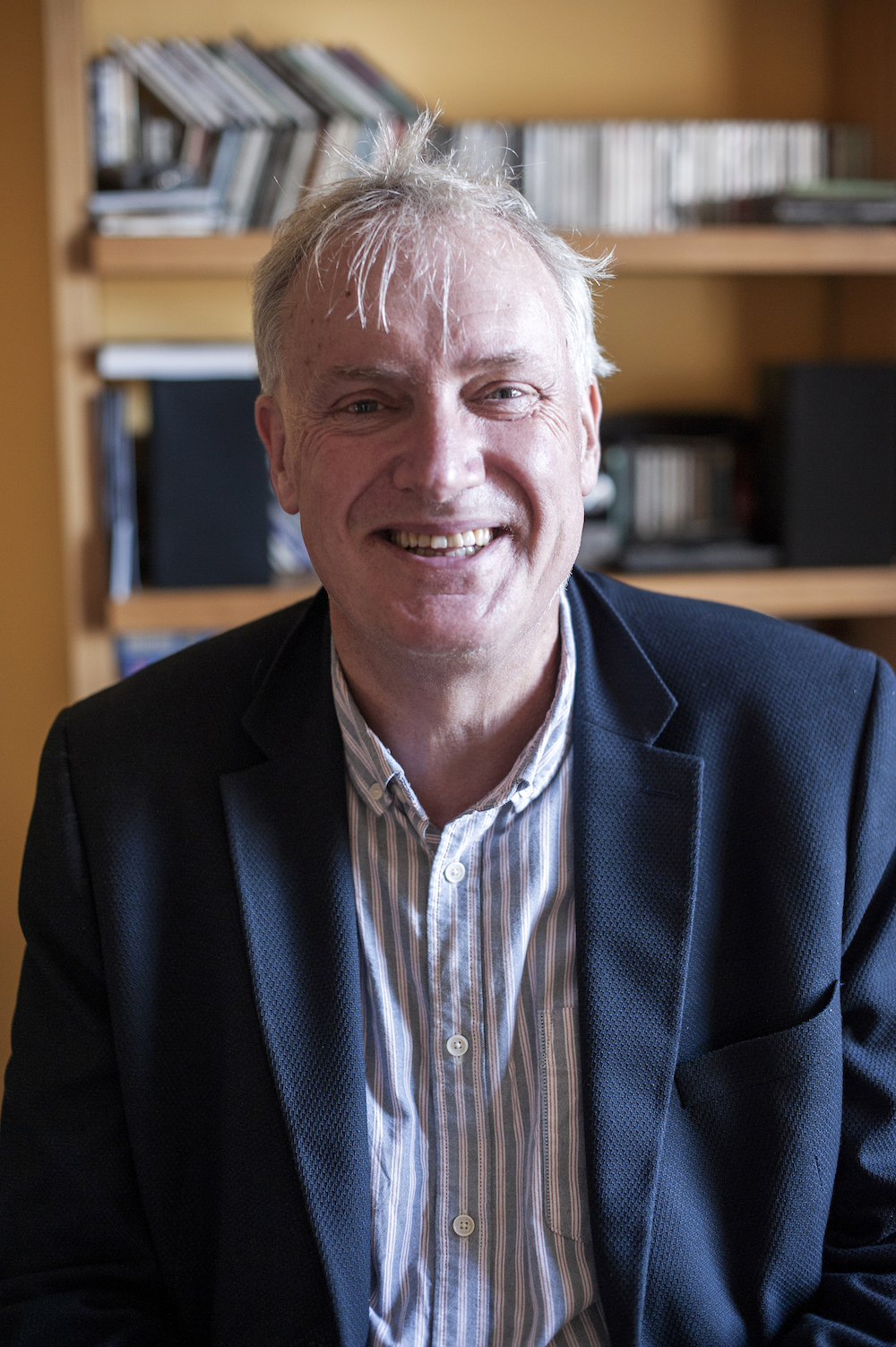
Luke O’Neill, professor of biochemistry at the School of Biochemistry and Immunology in Trinity College Dublin, lives in Sandycove, Co. Dublin, with his wife, fellow scientist, Margaret Worrall. They have two sons, Stevie, 23 and Sam, 20 who have both followed in their parents’ footsteps and are studying chemistry at Cambridge and Trinity, respectively.
Luke has written three books, Humanology: A Scientist’s Guide to Our Amazing Existence; a children’s book, The Great Irish Science Book and his newest, Never Mind the B #ll*cks, Here’s the Science, which is a guide to the biggest challenges facing our species today, including, of course, our current biggest challenge, a particularly malicious virus. Scientist by day, lead singer of his band, The Metabolix, by night, Luke is a ball of kinetic energy. His enthusiasm for all things is infectious and his optimism during our collective worst-of-times has cheered us up no end. We take tea in his garden and talk. There is so much to talk about.
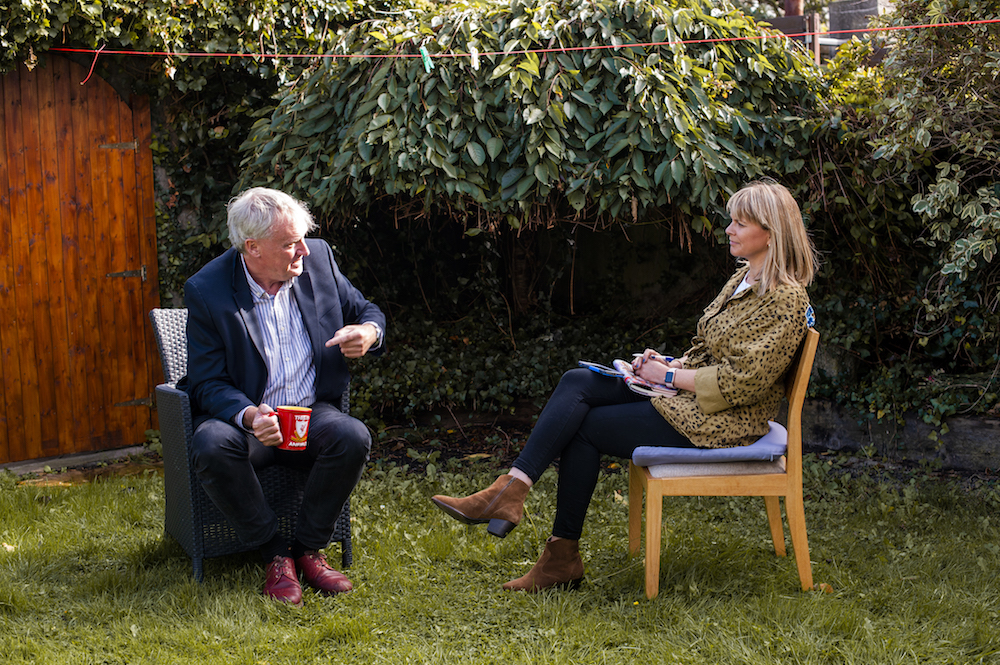
Professor Luke O’Neill, your wife says you need a holiday!
Yeah, we were discussing this the other day! But I don’t really, it’s a very exciting time scientifically at the moment. And for once, people are actually listening. It’s a good time to be a scientist.
Yeah, you’re a bit of a rock star at the minute! What does this new found fame feel like?
It’s the most alarming thing! I can’t wait to crawl back under a rock when all this is over!
What does your wife make of it all?
I have a great quote in the book: “Behind every great man is a woman rolling her eyes!” That probably captures it! Melania Trump must also have her eyes stuck up to the heavens! My wife finds it all quite amusing. It doesn’t really bother her. Nothing has really changed, I still come home everyday and do the dishes. She’s a scientist too, but in UCD, and is also working away on Covid-19.
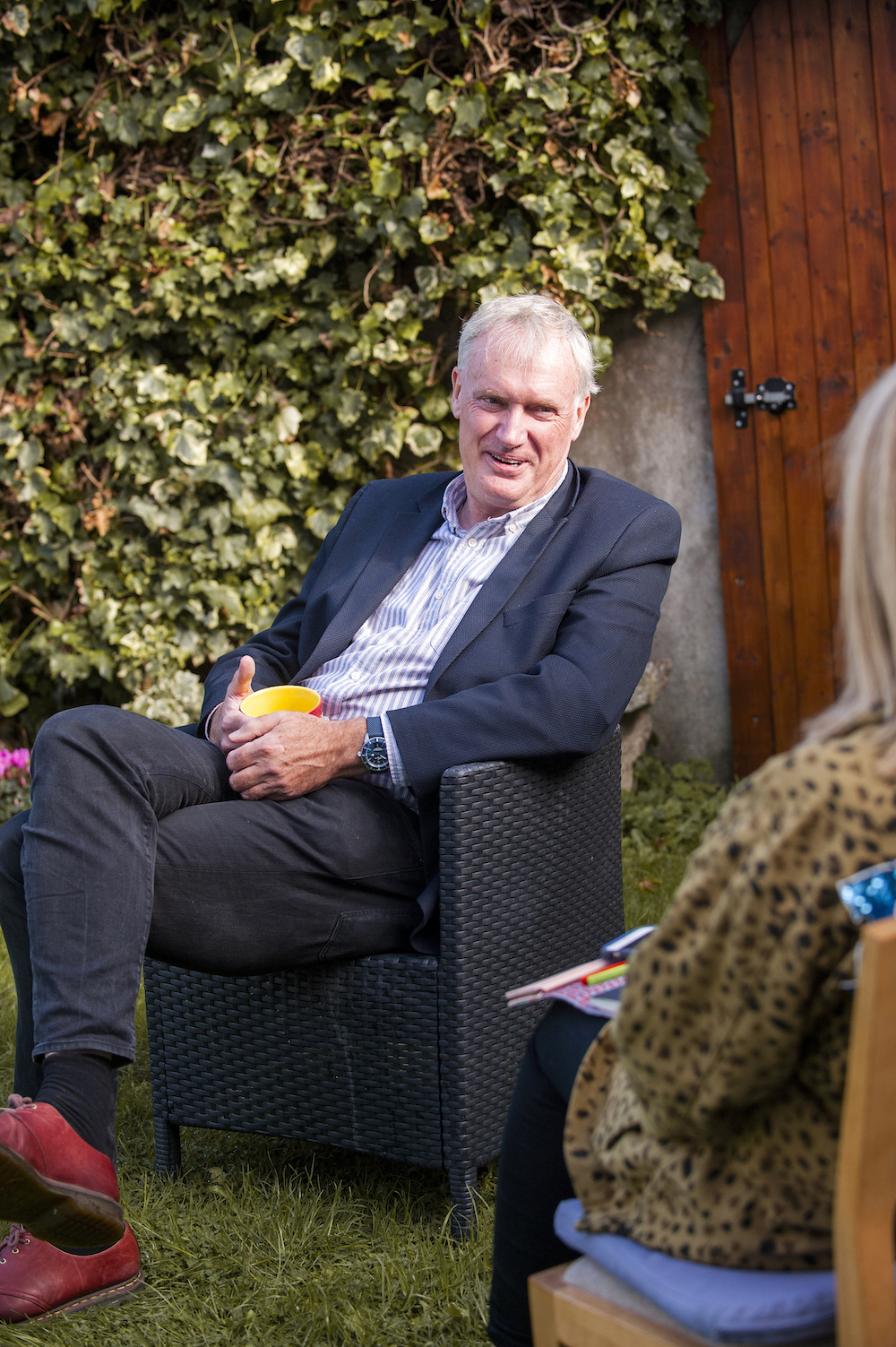
You are everywhere though: on the tv, on the radio, in the newspapers, in the Trinity lab and now on the bookshelves with new book, Never Mind the B #ll*cks, Here’s the Science. Where does sleep fit into all of this? It’s like three busses came along at the same time! The book came out the same week we sold our drug to Roche [more about his later]. Covid erupted and I’m an immunologist…I’m waiting for karma to hit! Being a scientist is not a job, it’s a massive privilege. I couldn’t work in a bank or in insurance, I’m not knocking those professions but they just wouldn’t be for me. It’s the novelty of science; every day new discoveries come in. If you’re any way ADHD or you need intellectual stimulation, science is a great profession.
And it’s a profession that has been handed down to your younger generation, too…
Yes, my two sons, Stevie, 23 and Sam, 20, are both scientists. Stevie did engineering to get away from it a bit, but he was drawn back, and is now doing a PhD in chemistry in Cambridge. It’s hard though, student life is not as it used to be. Sam is doing chemistry in Trinity. During lockdown Sam started doing this thing called Candemic (@can. demic), where he and his mates would review a beer every day on Instagram. He’s reviewed hundreds of beers. He’s made t-shirts, caps and face masks. That’s how he kept himself going.
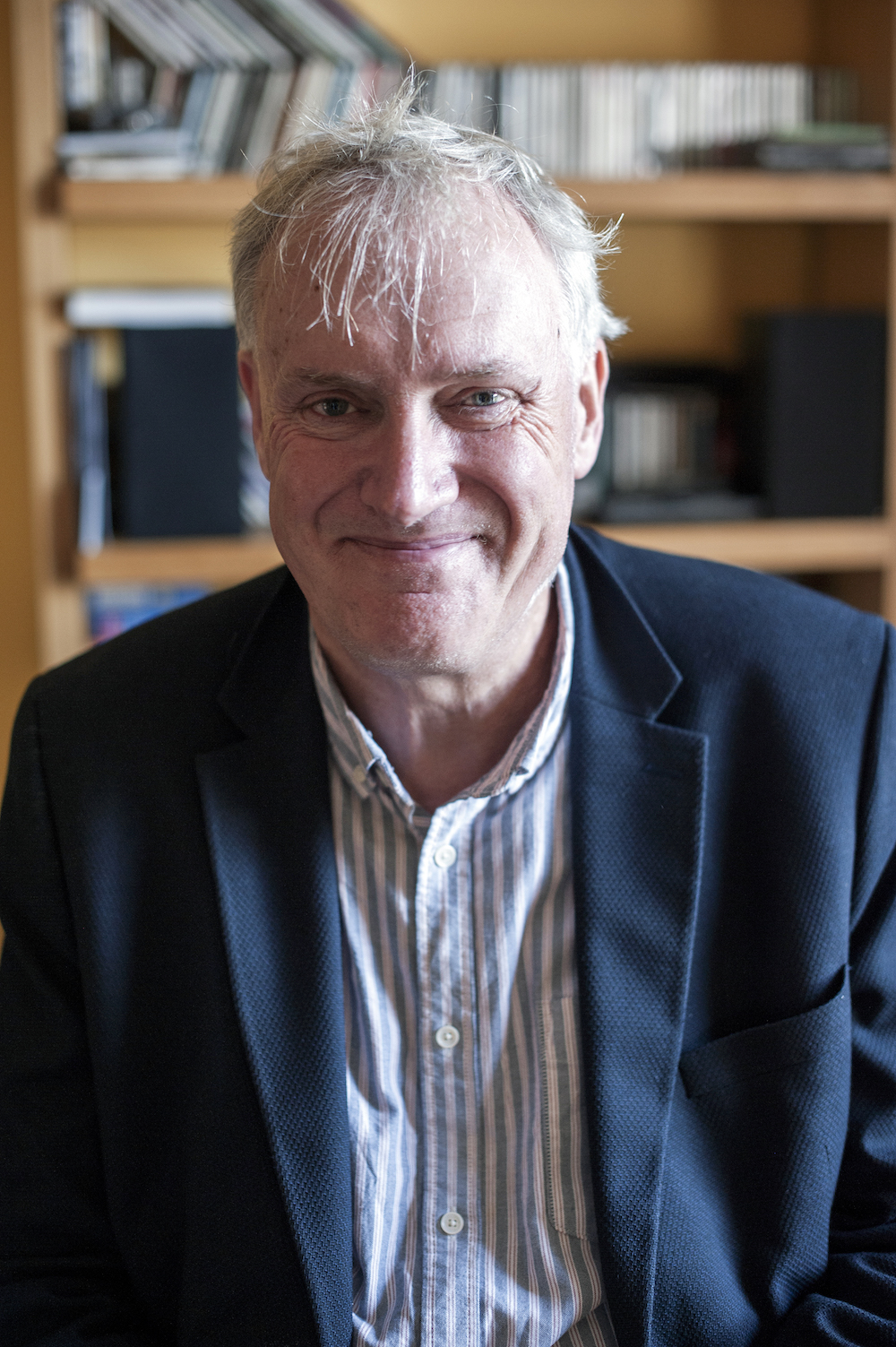
Preserving all our mental health during this worrisome time is an ongoing challenge. What have you done to keep spirits up?
I have been lucky in that I’ve been in the lab working on Covid-19, so I’ve been busy, and that helps. But I miss foreign travel because usually I’d be on the road a lot, going to meetings all over the world. A good mate of mine lives around the corner and I go over there, sit out in his garden and have a few pints.
You have this knack Luke of making science digestible. Is this because you have both an academic and creative mind?
Interestingly many scientists are also musicians and artists. You have to be creative to be a scientist. A scientist has an idea and then enacts the idea through experiments and data. An artist has to have an idea to start with. It’s similar.
Your book ends with the lines: “I remain optimistic that things will continue to improve for humanity. Let’s keep that dream alive.” Your optimism during this time has kept us buoyed up. Where does it come from?
I’ve always tried to find my way out of a problem. Scientists get used to the hard knocks because there’s
a 90 per cent failure rate with experiments. I always try to just move forward. And to move forward you have to be optimistic, or otherwise you wouldn’t bother.
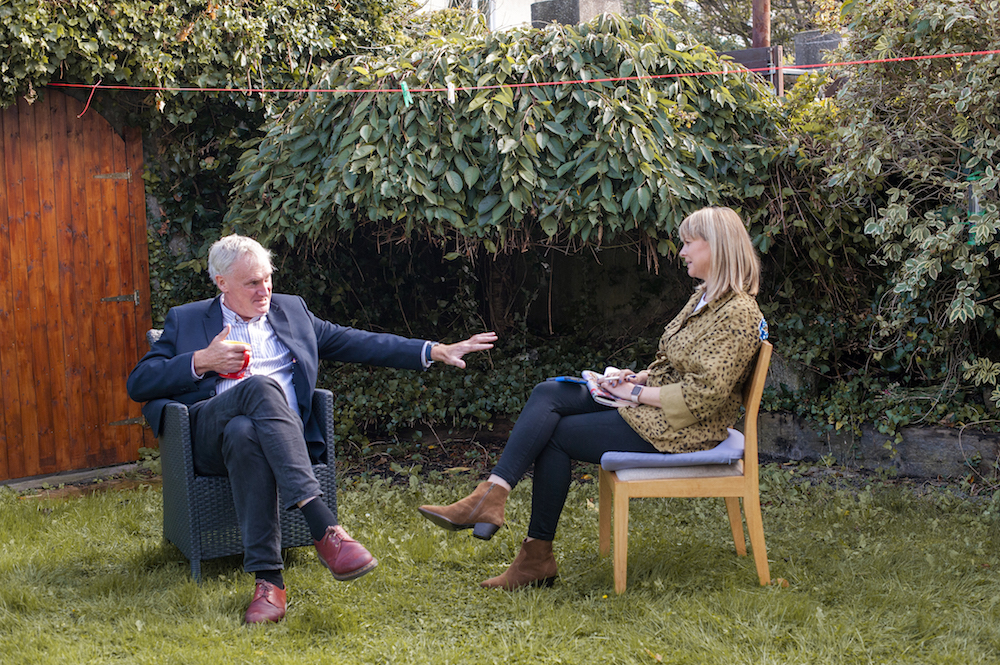
Are you optimistic you’ll be okay, if you catch Covid-19?
I am. I’m not in a high risk group. If I was over 70, I’d be much more cautious. Or if I had heart disease or asthma or was obese or had high blood pressure. I am in my 50s so there is slightly more risk than someone in their 40s. But over 60 it really begins to ramp up. So, no, I wouldn’t be worried about getting it and if anything I would volunteer for the vaccine now.
We are also pleased to hear that you are very optimistic about the 10 vaccine trials which are now in the final phase of testing.
The reasons why I’m optimistic are as follows: the phase two trials were good, they measured peoples’ immune response and they got a great immune response, including in older people. And older people you worry about because their immune system is not that active. But there’s one big fence to jump now, I’m calling it Beeches Brook like in The Grand National, and that is phase three. Now, there’s ten in the game in phase three, ten players on the field, and all you want is one. So you have to be optimistic because the amount of science behind this is spectacular. My prediction is that the vaccines won’t work like gang busters but that they’ll give partial protection. Even if they are 50 per cent effective that is superb. So you vaccinate the vulnerable and you shield them in a way using a medicine. Locking people up in houses is not acceptable. Shield them with a vaccine.
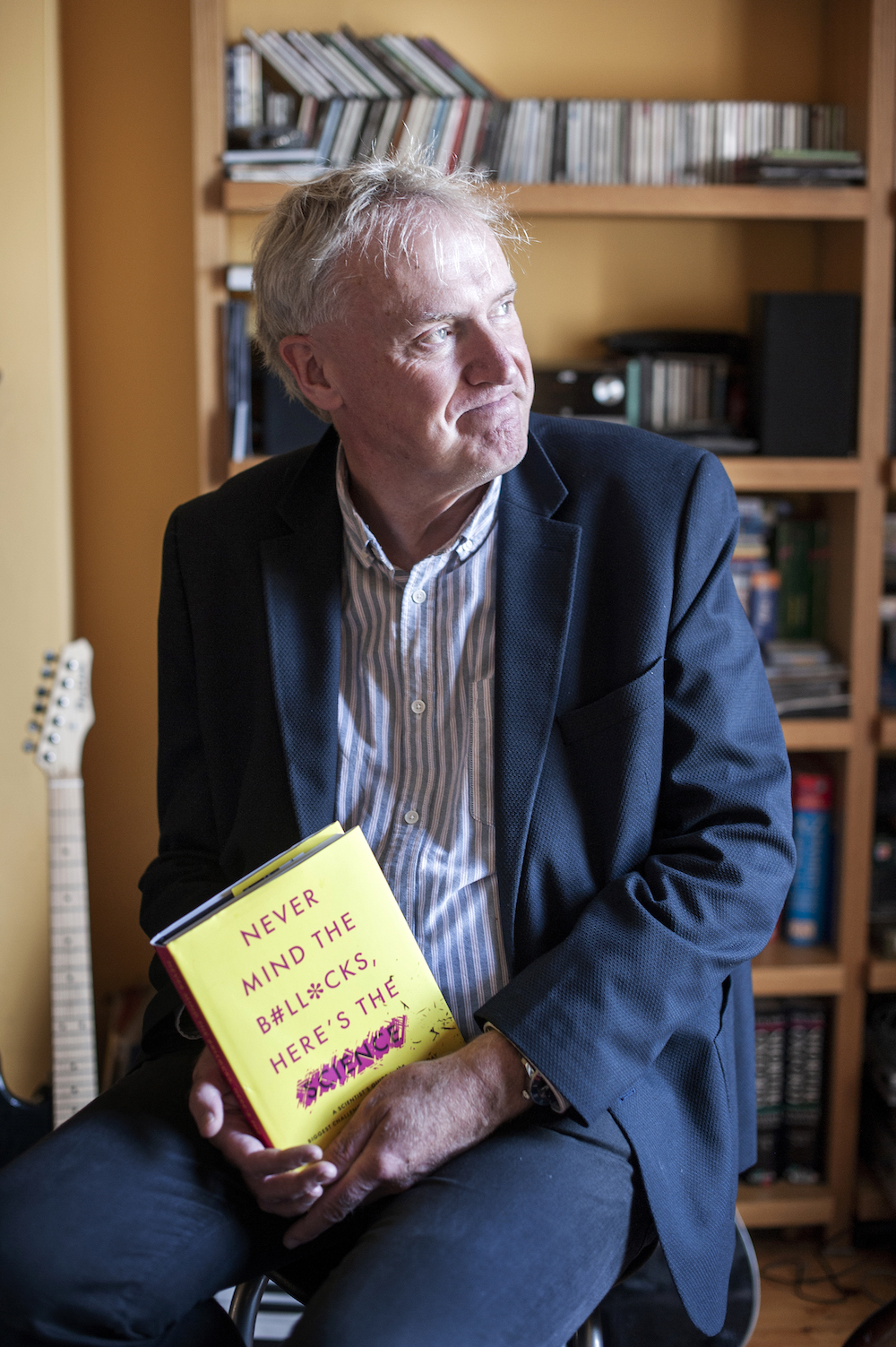
There’s a chapter in the book all about vaccines where you say, if you want to annoy an immunologist tell them you haven’t vaccinated your child. Vaccines are good, but are some bad?
What you do in science is you go for a consensus view. There is evidence that vaccines can be harmful, but it is extremely rare. And most things have some risk attached to them. Vaccines are one of the safest things we can do in medicine. Every drug has a risk, a side effect. A billion doses and six thousand people getting adverse effects? That’s tiny… when it comes to vaccines the science is so compelling that you have to vaccinate… But we’re in a free country so you can’t force people, but the French got it right, they don’t have a law to vaccinate, but they exclude you from things if you don’t. So, if your kids are not vaccinated they can’t go to school. Now what I predict will happen with Covid-19 is that if you don’t take the vaccine, you can’t travel anywhere.
Interesting. As a scientist, have you been waiting for this pandemic? Was it always coming?
I would always try to avoid a virologist at a meeting because they’d always say a pandemic was coming! But were they expecting a virus like this? No, this is particularly pernicious. SARS was put out pretty quickly because it was symptomatic spread, but you could be sitting there with Covid and I could get it off you. It’s really hard to control. If you tried to design a virus – and, no, this virus was not designed – you couldn’t have designed a worse one because it spreads like wildfire, from people with no symptoms.
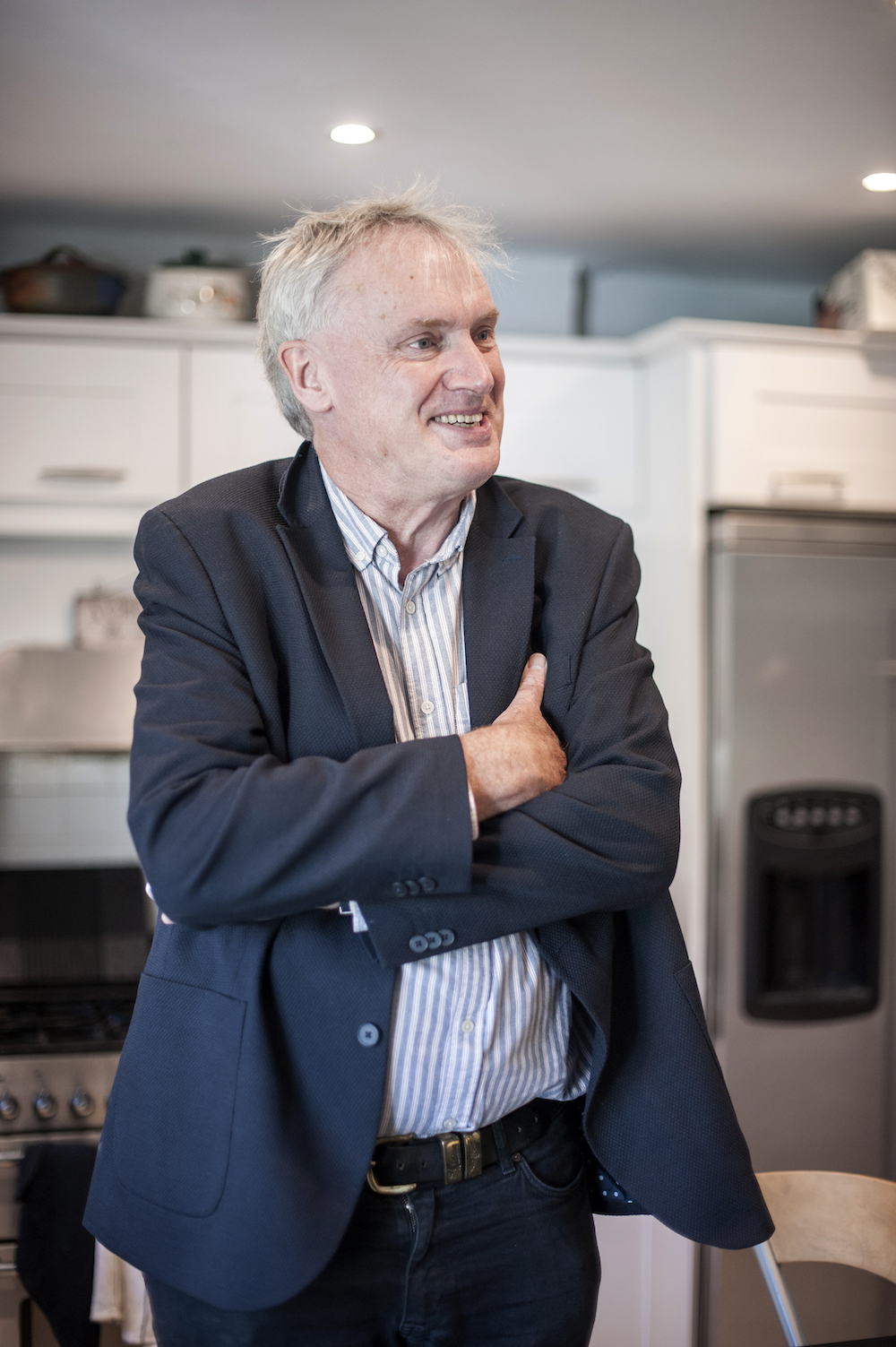
We must congratulate you on the buy-up of your anti-inflammatory drug by Roche for €380 million! But anti inflammatory is a double edged sword, is not? Because don’t we need out body to use inflammation to help protect and recover? And isn’t part of the problem with Covid, actually inflammation?
It is very much so. My whole life’s work in many ways has been trying to unravel the complexity of inflammation, and we know an awful lot about it. So, if you have a normal infection your immune system kicks in and the inflammatory process fights the infection and it goes away and you get better. But for some reason in some people this goes out of control and in Covid it can go haywire…
Why though?
Well, sadly if you are old, your system can’t fight the virus and it builds up and becomes toxic and the inflammatory process drives the inflammatory process out of control. Secondly
if you have heart disease, or you are obese, or have high blood pressure, there’s pressure on your body already, the virus gets in and begins to irritate and creates an imbalance. And other illnesses are similar. Look at Alzheimer’s, it’s like a fire in your brain. The part of the brain where the memories are stored becomes inflamed and the cells start to die and you lose your memory.
Will your drug change the lives of those with Chron’s, rheumatoid arthritis and Alzheimer’s?
That’s the absolute dream. This is the biggest idea in inflammation in 50 years. Now the proof of the pudding is coming up and the glory of this is that Roche will do loads of clinical trials which will start soon. Now it takes years to do trials, so we are still a few years out. But they really believe in this drug; they wouldn’t have given us that amount of money if they didn’t.
Have you ordered the luxury yacht, yet?!
Ah no, I don’t get that much money! But I’ve not done too bad. I’ve done reasonably well. But it wouldn’t be enough to turn me!
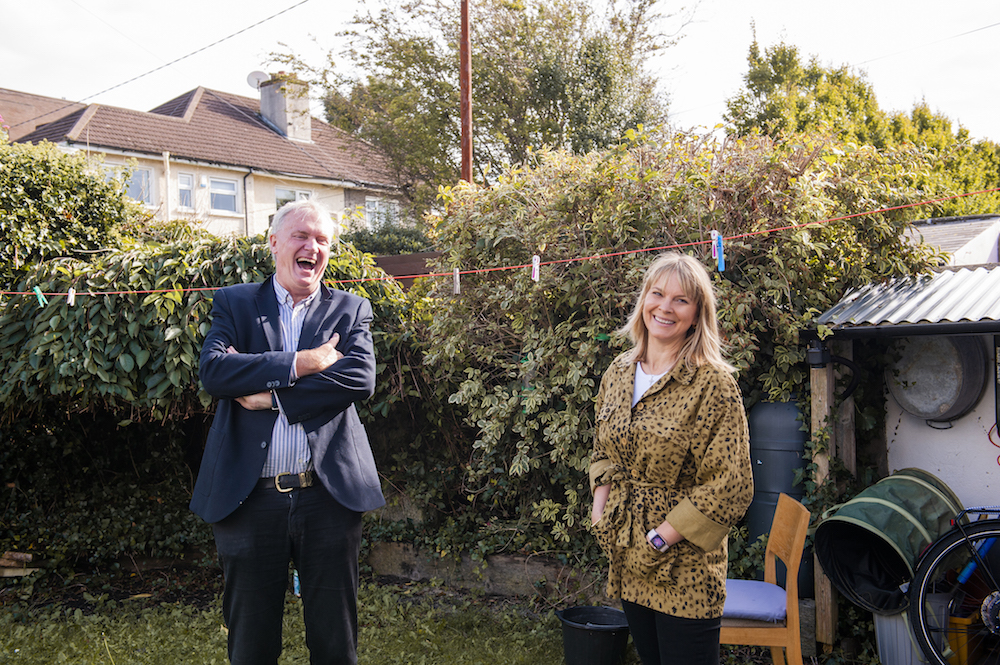
You know an awful lot about inflammatory markers so what about the likes of Turmeric and CBD oil – do they work or is it hocus pocus?
They do, many medicines have come from herbal treatments. Aspirin is a famous one that I worked on that comes from willow bark. A drug called digoxin for the heart was from the flower foxgloves. Now Turmeric from the Indian culture, it is definitely anti-inflammatory, the issue is getting the dose high enough. CBD is fascinating. There is definitely really interesting things in cannabinoids and there’s no doubt they help the likes of, for example, muscle spasms.
There’s a chapter in the book about addiction. You ask: why can’t we stop doing the things that are bad for us? Why can’t we?
As humans we’re supposed to be addicted to things. Falling in love is an addiction. You know when you are in love for the first time you hang around the person’s house and stay late at parties when you don’t really want to be there: that’s the behaviour of an addict and it looks like drugs trigger the same pathways. It’s part of being human.
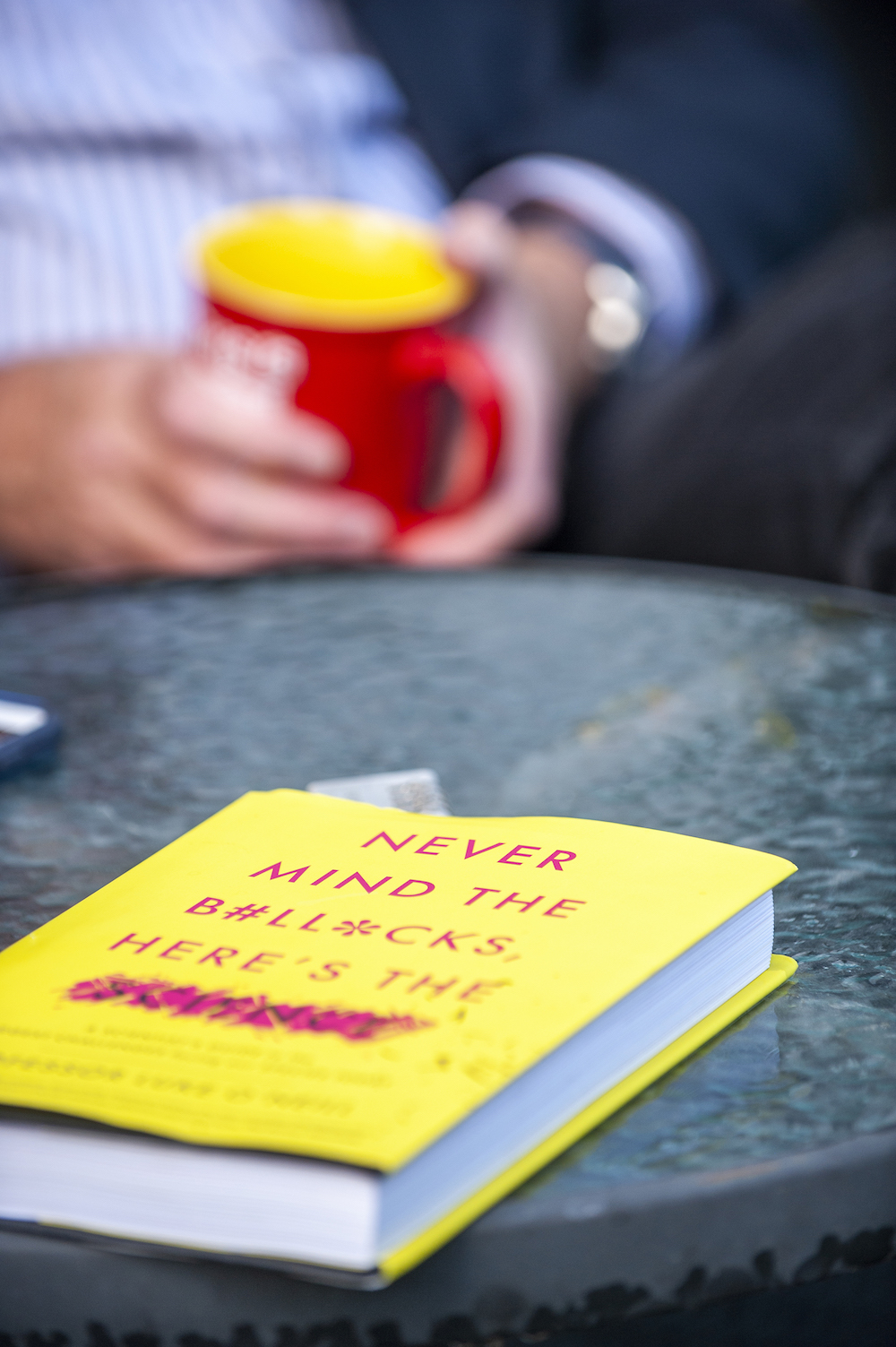
In another chapter in the book called Men are from Mars, Women from Venus. In a nutshell, are we?
No, we’re very similar it turns out. Every study since the 1970s reveals that those differences we thought were there, aren’t. What we do know is that women are slightly more empathic and men are a bit more assertive, but this goes back to the law of the jungle where women had to be more empathic because they were carrying the baby, and men had to be more assertive because they had to protect. The beauty of humans is that men and women together are a powerful force because we complement each other. Now the big controversies for years were: are women no good at maths and can they park a car? And it’s all complete bullshit. I talk about women leaders: are women better leaders than men? And that seems to be the case because they have more empathy. There are differences, of course, because of the way you were brought up, but they are not innate.
Do you believe in an after life? Or to scientists, is that all cock and bull?
Some scientists do, some are very devout, strange isn’t it?! But me? No – sadly not! I couldn’t believe in God – that’s made up. Humans made that up to comfort themselves. Now, I might believe in a spiritualism. There’s something interesting about humans, we have this other side to us. A bit of me holds out for something beyond the physical.
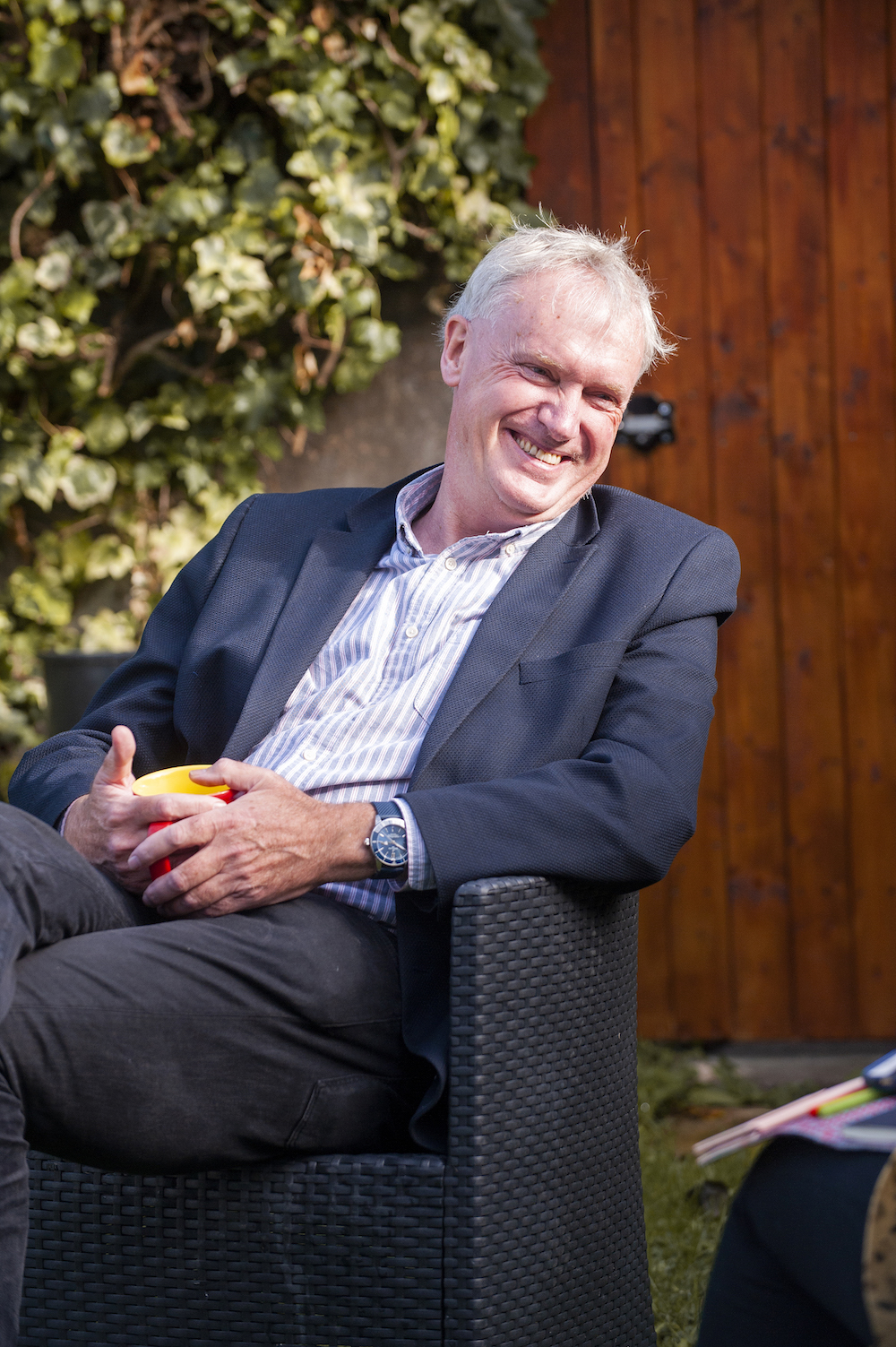
When you’re in a bad place, as sometimes we all are, what helps?
Six pints of Guinness! [laughs] Ah, no, that actually makes you worse, gives you the fear! The arts, playing the guitar, watching a good movie or, at the moment, tv series Breaking Bad! Walter White (the fictional high school chemist turned meth-maker) – I’m a mega fan!
About your band, The Metabollix – have you been able to rehearse despite Covid-19?
No, not since March. But Bressie asked me to do a podcast and asked would I bring the band to record three songs to lift the nation, so we did. We safely performed, Don’t Stop Thinking about Tomorrow by Fleetwood Mac, Superstition by Stevie Wonder and Old Time Rock n’Roll by Bob Seger. It lifted our mood, no end!
INTERVIEW: Bianca Luykx
PHOTOGRAPHY: Lili Forberg; misslili.net




